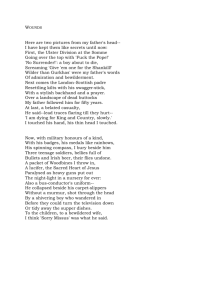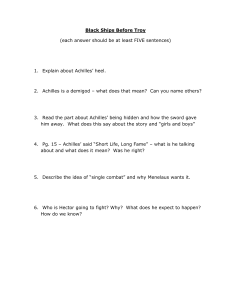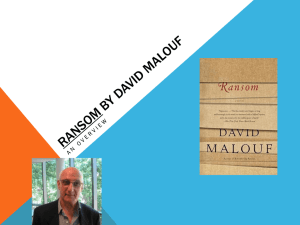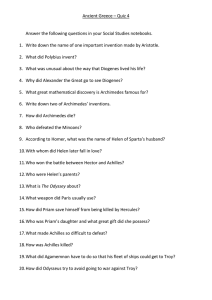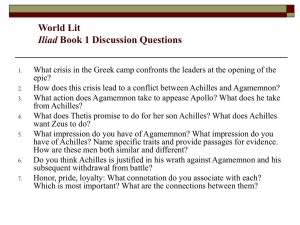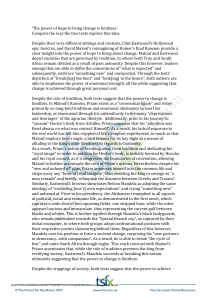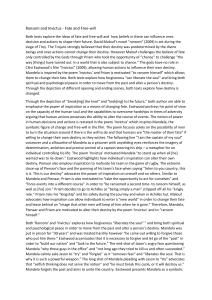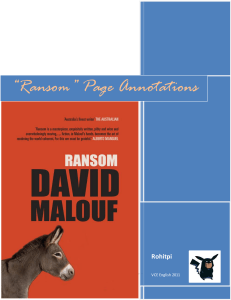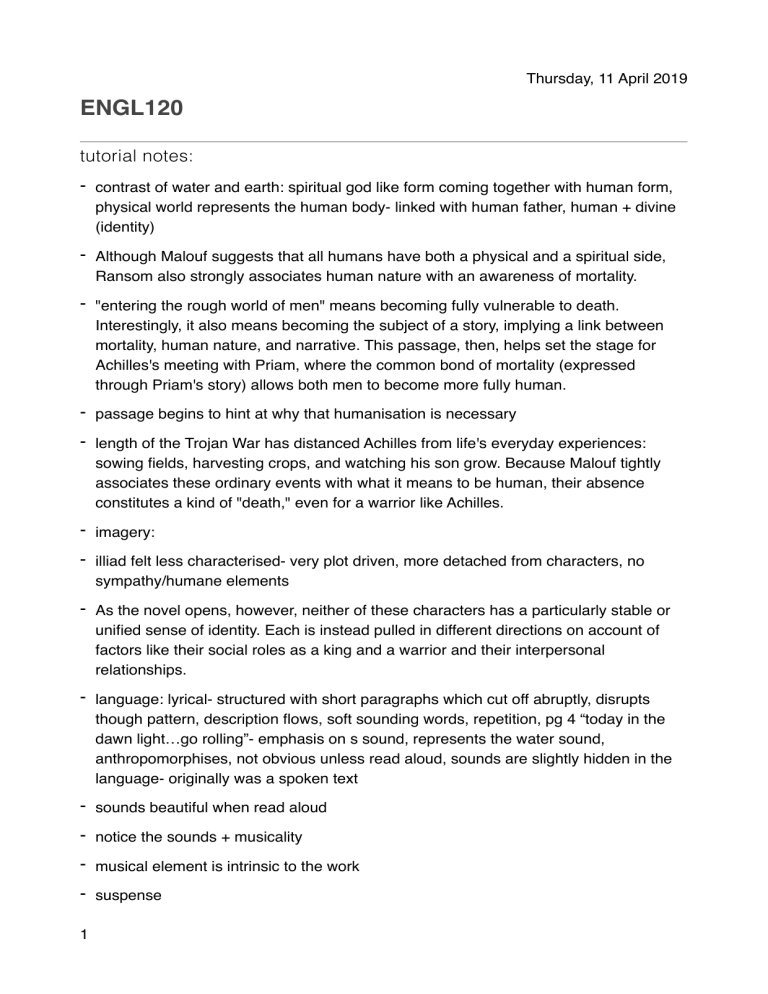
Thursday, 11 April 2019 ENGL120 tutorial notes: - contrast of water and earth: spiritual god like form coming together with human form, physical world represents the human body- linked with human father, human + divine (identity) - Although Malouf suggests that all humans have both a physical and a spiritual side, Ransom also strongly associates human nature with an awareness of mortality. - "entering the rough world of men" means becoming fully vulnerable to death. Interestingly, it also means becoming the subject of a story, implying a link between mortality, human nature, and narrative. This passage, then, helps set the stage for Achilles's meeting with Priam, where the common bond of mortality (expressed through Priam's story) allows both men to become more fully human. - passage begins to hint at why that humanisation is necessary - length of the Trojan War has distanced Achilles from life's everyday experiences: sowing fields, harvesting crops, and watching his son grow. Because Malouf tightly associates these ordinary events with what it means to be human, their absence constitutes a kind of "death," even for a warrior like Achilles. - imagery: - illiad felt less characterised- very plot driven, more detached from characters, no sympathy/humane elements - As the novel opens, however, neither of these characters has a particularly stable or unified sense of identity. Each is instead pulled in different directions on account of factors like their social roles as a king and a warrior and their interpersonal relationships. - language: lyrical- structured with short paragraphs which cut off abruptly, disrupts though pattern, description flows, soft sounding words, repetition, pg 4 “today in the dawn light…go rolling”- emphasis on s sound, represents the water sound, anthropomorphises, not obvious unless read aloud, sounds are slightly hidden in the language- originally was a spoken text - sounds beautiful when read aloud - notice the sounds + musicality - musical element is intrinsic to the work - suspense 1 Thursday, 11 April 2019 - focalisation switches all the time between characters, coming from the narrator but we gather the perception - achilles: down to earth, doubts himself somewhat (sick of how long the war is dragging on, wants to be a father) - overall effect of opening- ransom’s achilles felt a lot less heroic and god-like than in the Illiad - loses his demigod status as he starts living with his father - in the end had control to kill but didnt- more merciful than heroic, more human, malouf has humanised the character - book 24 helps you structure answer for ransom, gives basis oh what is different (focalisation) - glue depends a lot more on book 24 than malouf does - gives you point of entry - malouf didn't want an antagonist- was meant to be achilles - repetition of ‘to’ is poetic - ransom embodies themes of identity and guilt - 2
